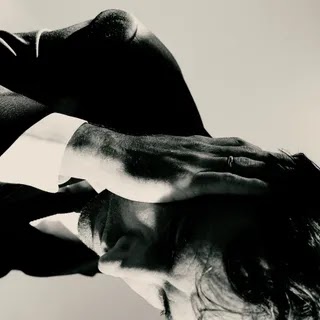Working with a few key collaborators, the singer-songwriter delves into inner turmoil and late-night anxieties. But they play with a relaxed touch, creating a cozy, inviting atmosphere.
Andrew Bird’s catalog offers ample evidence of a uniquely cerebral style of songwriting: His formidable discography spans artful Americana, refined revivals of hot jazz, a series of geographically -inspired records, and a bunch of Armchair Apocrypha, as he put it on the 2007 album that finally earned him a cult audience after a decade of steady work both on his own and with his group Bowl of Fire. Bird’s profile continued to rise in the decade after Armchair Apocrypha, to the point that he snagged a starring role on the fourth season of FX’s Fargo in 2020 and snared a Grammy nomination for My Finest Work Yet that same year.
Inside Problems plays like a retort to My Finest Work Yet, Bird’s last solo album. Where Bird addressed social upheaval on the 2019 record—a common trend among previously apolitical musicians during the Trump administration—Inside Problems is entirely concerned with matters of the mind and heart. It may chronicle an interior journey, but Inside Problems doesn’t sound insular, even if it wears its intimacy with pride. Working with a small group of musicians and featuring producer Mike Viola—a returning collaborator who helmed These 13, Bird’s 2021 duet album with Jimbo Mathus—on guitar, Alan Hampton on bass, and drummer Abe Rounds, Bird steers away from the folkier elements of his style, finding a previously uncharted territory closer to indie pop than Americana. The quartet plays with a distinctly relaxed touch, creating a cozy, inviting atmosphere.
But “cozy” might imply that Bird is mining familiar territory on Inside Problems, which isn’t quite true. He still relies on his customary tricks: He wields his violin and occasionally contributes a spectral whistle that dances along the margins, as it does on “Fixed Positions,” and he invites Jimbo Mathus to give “Faithless Ghost” a bit of revival spirit. Despite these accents, Inside Problems feels strikingly urbane, a well-tailored record whose heart and mind reside in the modern world, rather than some imagined Americana past. There are repeated allusions to author Joan Didion—there’s a direct nod on the sprightly “Lone Didion,” while “Atomized” spins off of her 1968 essay collection Slouching Towards Bethlehem—and Lou Reed’s ghost looms over a good portion of the record, surfacing on “The Night Before Your Birthday,” a muffled thump of a rocker where Bird adopts Reed’s patented sneer. “Stop n’ Shop” occupies the same studiously primitive territory as “The Night Before Your Birthday,” but the results are closer to the cheerful naivete of Jonathan Richman. (It’s tempting to wonder if the song’s title might be a tip of the hat to Richman’s own “Roadrunner,” which immortalized the supermarket chain in its lyrics.)
These direct, unguarded moments are countered by tracks where Bird and company stretch out their rhythms, as they do on casually funky “Underlands,” or indulge in painterly textures, creating slowly shifting sounds that capture the elasticity of dreams. “Eight” takes full advantage of its nearly seven minutes, cascading to an extended instrumental session where Bird’s violin conveys emotions his meticulous vocals do not. It’s not that Bird is a limited singer—he can command attention with a murmur and ascend to the upper reaches of his range without cracking—but rather that the strength of Inside Problems lies in the way this small crew of musicians creates such a muted yet vibrant vibe. These 11 songs may be meant to chronicle a pointedly personal inner voyage, yet he’s wound up with a warm, collaborative record that feels like a balm for fear and loneliness.










%20Music%20Album%20Reviews.webp)





0 comments:
Post a Comment